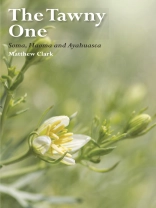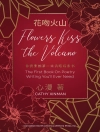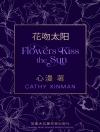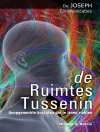A modern exploration of ancient wisdom relating to psychoactive plants.
The ancient ritual drink used in religious ceremonies and known as soma in India and as haoma in the Zoroastrian tradition is praised in the highest terms – as a kind of deity – in both Zoroastrian and Vedic texts, which date from around 1, 700 – 1, 500 BCE.
It is said to provide health, power, wisdom and even immortality.
Many theories have been published about the possible botanical identity of this ‘nectar of immortality’, a plant which appears to have psychedelic/entheogenic properties.
Matthew Clark spent several years researching and travelling widely in his quest of soma and in his fascinating, original and highly readable book, Clark reviews scholarly research, explores mythology and ritual and shares his extensive knowledge of psychoactive plants and fungi.
The author suggests that the visionary soma drink was based on analogues of ayahuasca, using a variety of plants, some of which can now be identified.
Jadual kandungan
1. Introduction
2. Soma in the Vedas and yoga texts
3. Haoma in the Avesta
4. ‘Substitutes’ for soma in South Asia
5. What are the effects of soma/haoma?
6. The botanical identification of soma/haoma: an overview
7. Cannabis/hemp
8. Altered states of consciousness and demarcation criteria
9. Diverse theories about soma/haoma
10. Ephedra
11. Fly-agaric mushrooms (Amanita muscaria)
12. Syrian rue (Peganum harmala)
13. Many plants are soma/haoma
14. A renewed case for a psychedelic: ayahuasca
15. Vedic and ayahuasca rituals
16. Greek mystery rites
17. Kykeōn and the ergot hypothesis
18. Bronze Age origins of entheogenic cults
19. Rejoinders to the ayahuasca thesis
20. Concluding remarks
References
List of abbreviations
Appendix 1: The Vedic sacrificial arena for agniṣṭoma rites
Appendix 2: Arundo donax (giant reed)
Appendix 3: Darbha/Kuśa grass
Appendix 4: Brief outline of the three largest Brazilian ayahuasca churches
Appendix 5: States of consciousness (diagram from METZNER 2009: 64)
Appendix 6: Pre-Columbian trans-Pacific contact?
Index
Mengenai Pengarang
Dr. Matthew Clark is a Research Associate at the School of Oriental and African Studies (University of London), where he has taught courses on Hinduism. He has spent many years in India, which he first visited in 1977. He first engaged with yoga in the mid-1970s and lectures regularly on yoga and philosophy. His publications include ‘The Dasanami-Samnyasis: The Integration of Ascetic Lineages into an Order (2006)’, which is a study of a sect of sadhus, and a short book on the origins and practices of yoga (2007). He is also a song-writer and musician (Mahabongo).












